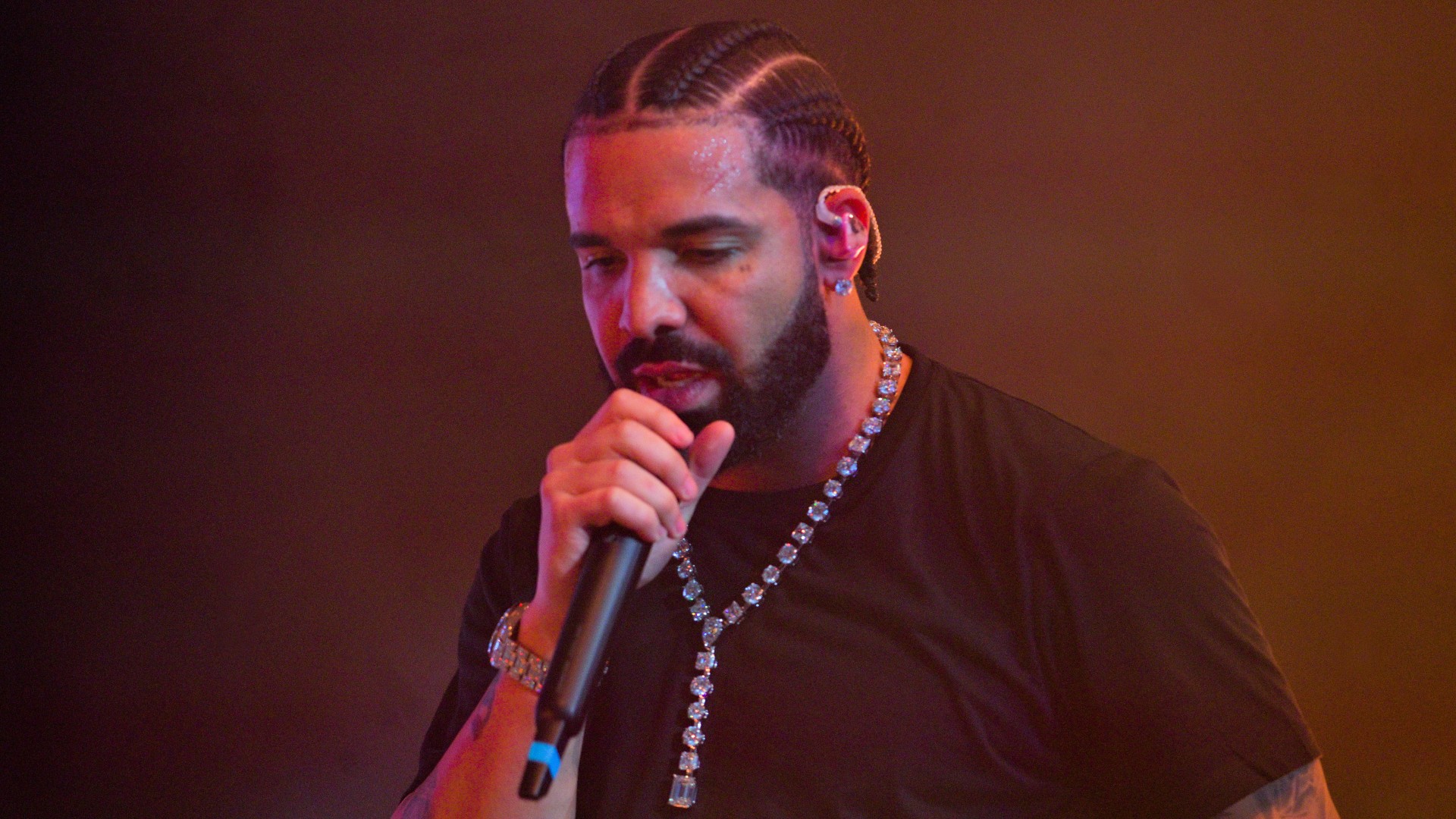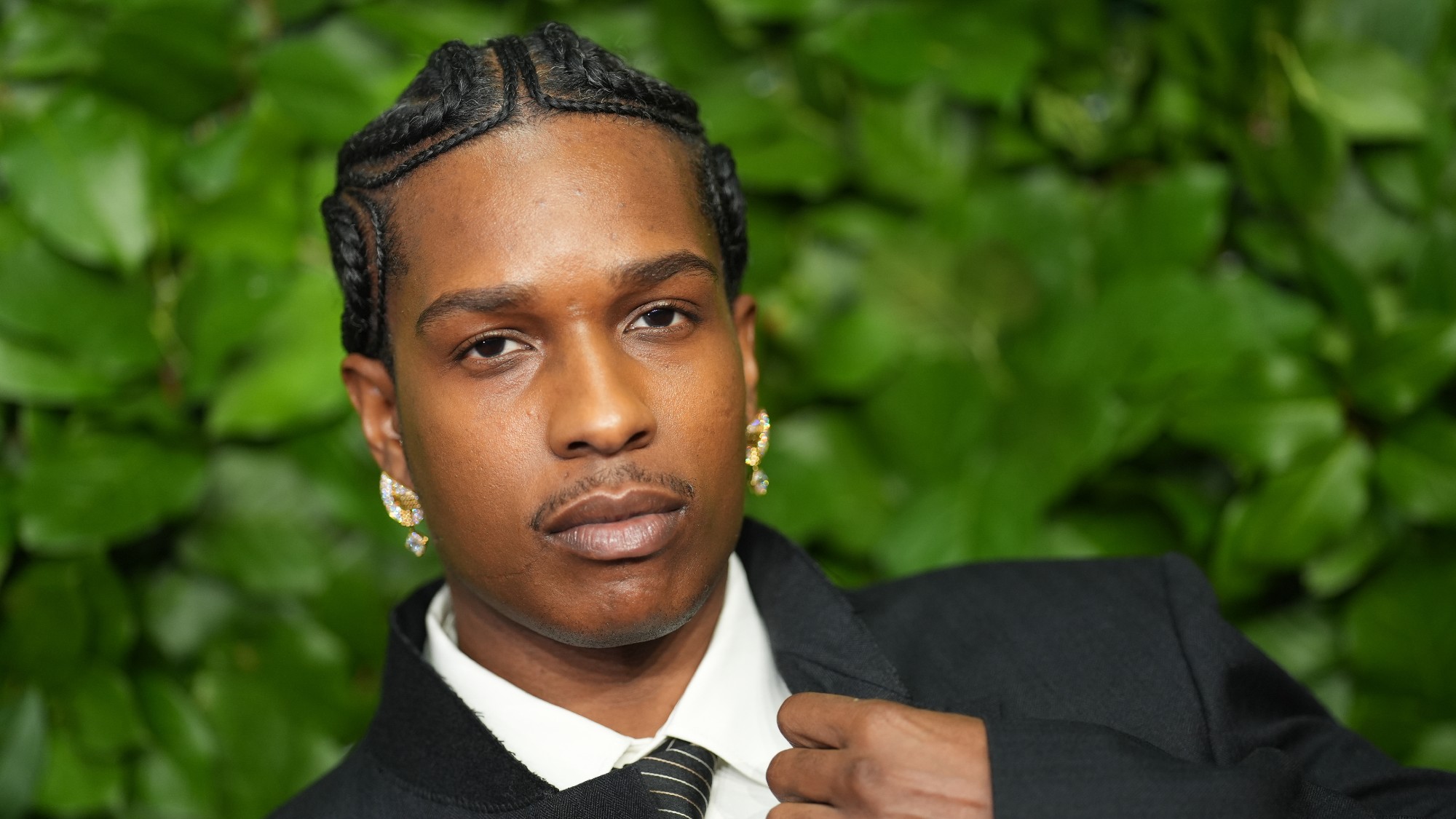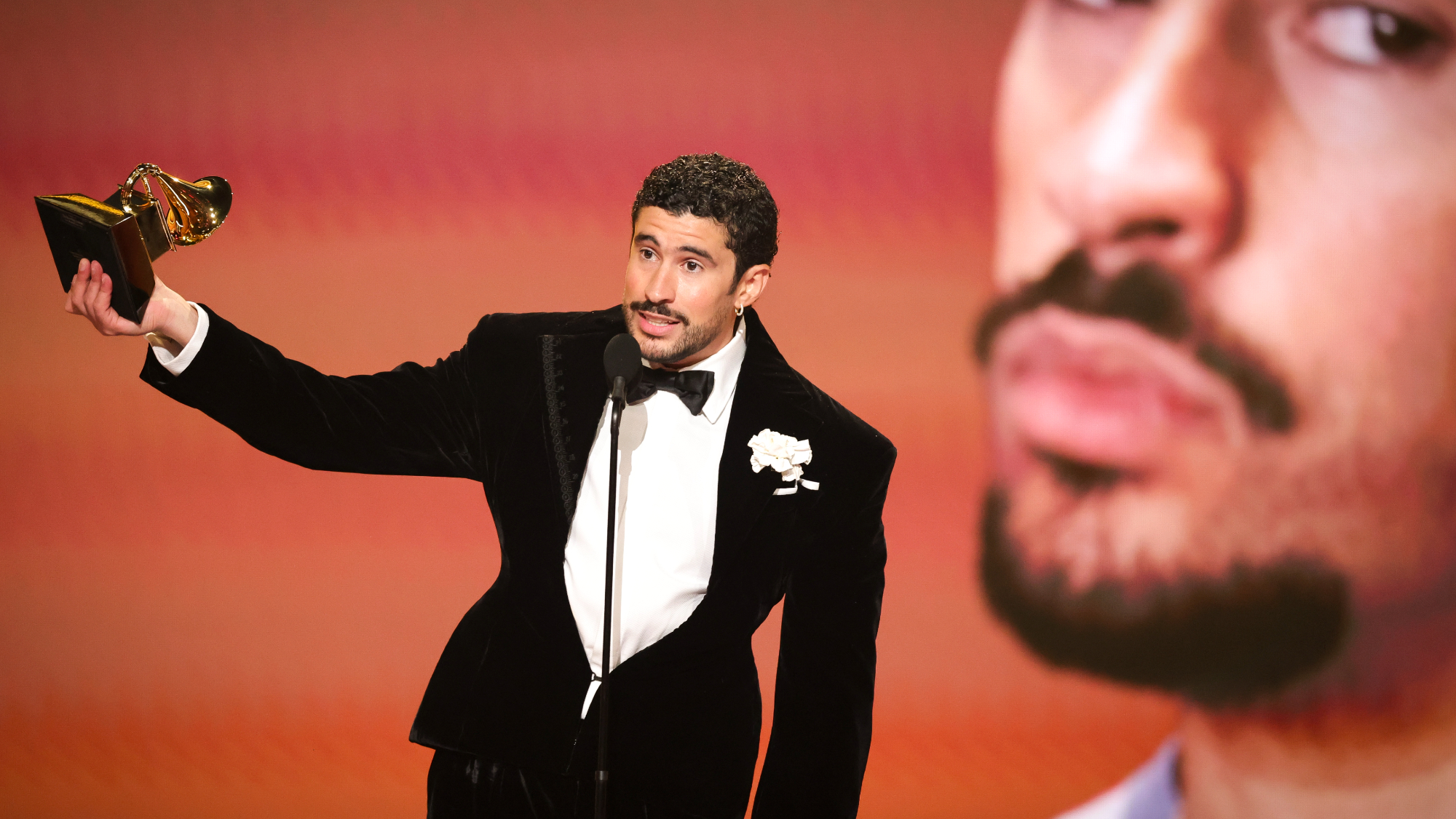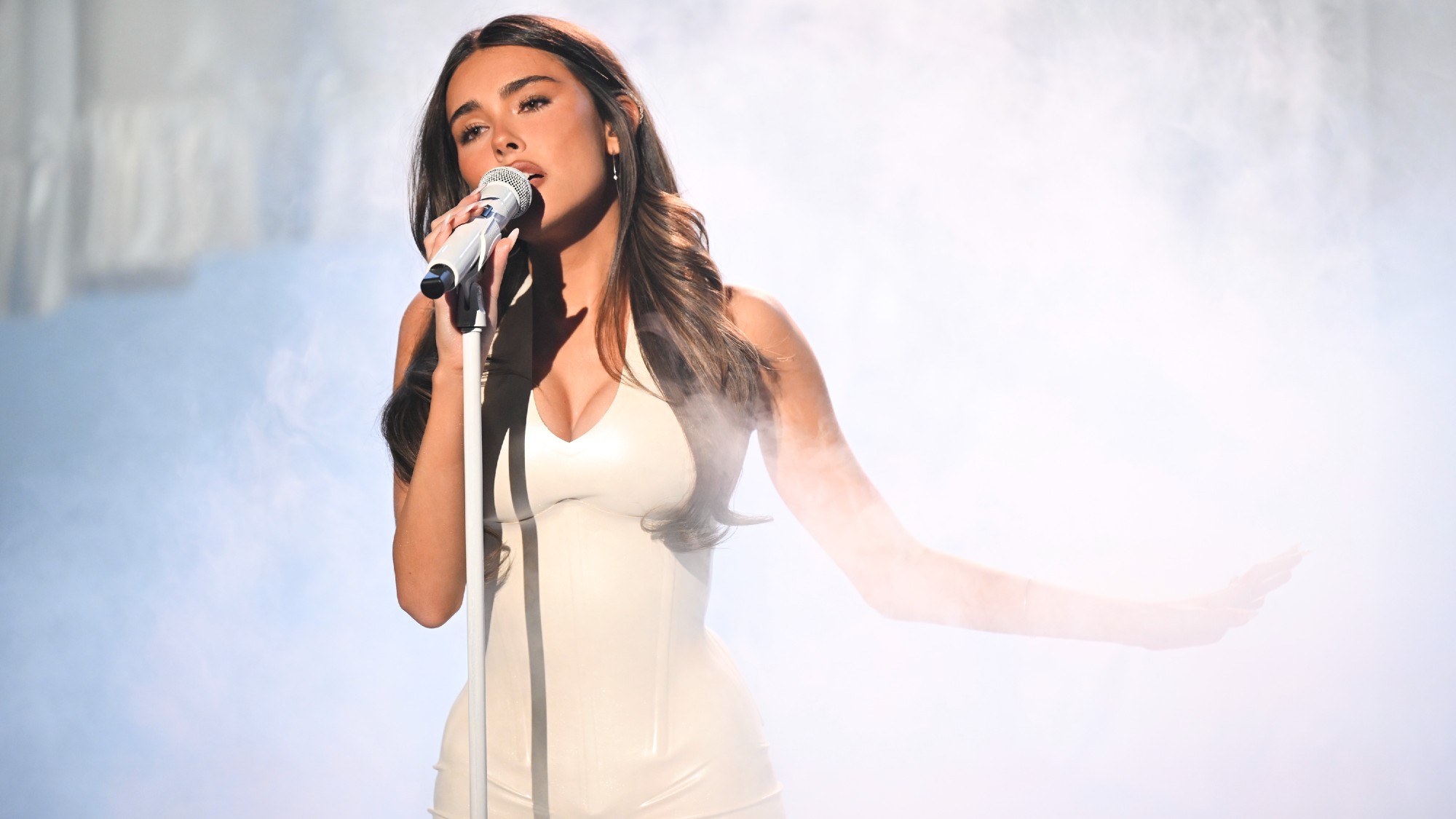Kendrick Lamar vs. Drake: how real is the feud?
Beef between Californian rapper and Canadian hip-hop star goes 'nuclear' with diss tracks full of serious allegations

A free daily email with the biggest news stories of the day – and the best features from TheWeek.com
You are now subscribed
Your newsletter sign-up was successful
A long-standing feud between two of the world's most famous hip-hop artists has "exploded into full-bore acrimony and unverifiable accusations".
The Canadian music titan Drake and Compton-born Kendrick Lamar, the first rapper to win a Pulitzer Prize, have "rapid-fire released" multiple songs over the past two weeks. The tracks have been "littered with attacks", accusing their rival of sexual and physical abuse, as well as jabs at "hypocrisy, generational trauma and more", said The New York Times (NYT).
Lamar has been the "most relentless", releasing four "verbose and conceptual diss tracks" totalling more than 20 minutes of new music in the past week, and racking up millions of streams.
The Week
Escape your echo chamber. Get the facts behind the news, plus analysis from multiple perspectives.

Sign up for The Week's Free Newsletters
From our morning news briefing to a weekly Good News Newsletter, get the best of The Week delivered directly to your inbox.
From our morning news briefing to a weekly Good News Newsletter, get the best of The Week delivered directly to your inbox.
On Tuesday, the saga took an alarming turn when a security guard was shot and seriously injured outside Drake's Toronto home. An investigation is ongoing and neither artist has commented publicly on the incident.
What's the background?
Drake, 37, and Lamar, 36, have spent more than a decade "antagonizing one another in songs while maintaining an icy frenemy rapport in public", said the NYT.
The rift grew deeper as Drake became "his generation's premier hitmaker", while Lamar "burrowed deeper into his own psyche on knotty concept albums" that generated more critical acclaim than constant commercial success. But what was something of a "hip-hop cold war" has now gone "nuclear".
In March, Lamar made a surprise appearance on an album by Atlanta rapper Future and producer Metro Boomin, providing a guest verse on the track "Like That", the lyrics of which were widely perceived to include a jab at Drake.
A free daily email with the biggest news stories of the day – and the best features from TheWeek.com
Drake then released diss tracks "Push Ups" and "Taylor Made Freestyle" a week apart in April, targeting Lamar. The latter, released only on social media, used an unauthorised AI clone of Tupac Shakur's voice, prompting a cease-and-desist order from the deceased rapper's estate, which forced Drake to pull the track from the internet.
Last week, Lamar dropped "Euphoria", accusing Drake of poor parenting, followed by "6:16 in LA". Then Drake responded with "Family Matters", accusing Lamar of having physically abused his wife. Lamar responded with "Meet the Grahams", a six-minute dissection of Drake that included advice to his son, alleged secret daughter and parents. A few hours later Lamar released "Not Like Us", accusing Drake of paedophilia.
On Monday, Drake came back with "The Heart Part 6" – "seemingly dismissing the lyrical combat in what was likely his last song of the battle", said Billboard.
How serious is it?
Lamar's initial verse on "Like That" sounded like "a little skirmish" between the two titans of 15 years of hip-hop, said Pitchfork. This all felt like "two insanely accomplished rich guys chasing a thrill": real but fake, like a bout of professional wrestling.
But Lamar's "Euphoria" was a "slow-building evisceration of Drake's identity". Now, the beef has acquired an "unprecedented, live-wire pace" and reached "dark places". Drake calls Lamar's "pro-Blackness a sham" and accuses him of abusing his wife; Lamar calls Drake a "degenerative deadbeat" and a sexual predator. These are some of the "most bizarre, uncomfortable, overwhelming and evil diss tracks ever".
Who's winning?
It's clearly Lamar, said Ryan Broderick, author of the Garbage Day internet culture newsletter. Lamar is waging "total online war against Drake", packing his verses with "investigative journalism" and "dense references" for fans to pick apart online.
Meanwhile, Drake is responding to Lamar's diss tracks via his Instagram story, "like it's 2017 still". There is a "wide gulf" between how the two artists understand the technological landscape.
The court of public opinion "seems poised to announce the Compton MC as the victor", said Billboard, after the "knock-out blow" of "Not Like Us", which is "already making its way into the heart of pop culture".
Those who adored Drake for pop megahits like "Hotline Bling" or "One Dance" won't care about the outcome of the beef, but in the rap world, Drake's loss against "hip-hop's cerebral assassin will certainly muddy his standing". After all, "you don't get brownie points for coming in second place in hip-hop".
What does this mean for hip-hop?
Does it even matter who wins, asked Pitchfork. Rather than an exciting lyrical duel, this has turned into a "messy, confusing conflict that, at its core, is nothing but ugly". The allegations the pair have flung at one another go well beyond "typical rap beef shenanigans" and are "so serious they will hang over their legacies forever".
Hip-hop already felt "long overdue for a reckoning", with alleged abuser Dr. Dre (once Lamar's mentor) approaching billionaire status and convicted abuser Kodak Black (featured on Lamar's last album) still a "megastar". Meanwhile, Drake is among the stars to have come out in support of fellow Canadian rapper Tory Lanez, jailed for shooting at "WAP" hitmaker Megan Thee Stallion.
And both Drake and Lamar seem not to "give that much of a shit about anything other than jokes and trolling". Listening to these superstars drag each other through the dirt – "for what? Entertainment? Competition? Ego? Boredom?" – sounds like "the death knell of an entire era".
Harriet Marsden is a senior staff writer and podcast panellist for The Week, covering world news and writing the weekly Global Digest newsletter. Before joining the site in 2023, she was a freelance journalist for seven years, working for The Guardian, The Times and The Independent among others, and regularly appearing on radio shows. In 2021, she was awarded the “journalist-at-large” fellowship by the Local Trust charity, and spent a year travelling independently to some of England’s most deprived areas to write about community activism. She has a master’s in international journalism from City University, and has also worked in Bolivia, Colombia and Spain.
-
 6 of the world’s most accessible destinations
6 of the world’s most accessible destinationsThe Week Recommends Experience all of Berlin, Singapore and Sydney
-
 How the FCC’s ‘equal time’ rule works
How the FCC’s ‘equal time’ rule worksIn the Spotlight The law is at the heart of the Colbert-CBS conflict
-
 What is the endgame in the DHS shutdown?
What is the endgame in the DHS shutdown?Today’s Big Question Democrats want to rein in ICE’s immigration crackdown
-
 Bad Bunny’s Super Bowl: A win for unity
Bad Bunny’s Super Bowl: A win for unityFeature The global superstar's halftime show was a celebration for everyone to enjoy
-
 The 8 best superhero movies of all time
The 8 best superhero movies of all timethe week recommends A genre that now dominates studio filmmaking once struggled to get anyone to take it seriously
-
 Josh D’Amaro: the theme park guru taking over Disney
Josh D’Amaro: the theme park guru taking over DisneyIn the Spotlight D’Amaro has worked for the Mouse House for 27 years
-
 Music reviews: Ari Lennox, Lucinda Williams, and A$AP Rocky
Music reviews: Ari Lennox, Lucinda Williams, and A$AP RockyFeature ‘Vacancy,’ ‘World’s Gone Wrong,’ and ‘Don’t Be Dumb’
-
 Bad Bunny, Lamar, K-pop make Grammy history
Bad Bunny, Lamar, K-pop make Grammy historySpeed Read The Puerto Rican artist will perform at the Super Bowl this weekend
-
 The best fan fiction that went mainstream
The best fan fiction that went mainstreamThe Week Recommends Fan fiction websites are a treasure trove of future darlings of publishing
-
 Music reviews: Zach Bryan, Dry Cleaning, and Madison Beer
Music reviews: Zach Bryan, Dry Cleaning, and Madison BeerFeature “With Heaven on Top,” “Secret Love,” and “Locket”
-
 Golden Globes affirm ‘One Battle,’ boost ‘Hamnet’
Golden Globes affirm ‘One Battle,’ boost ‘Hamnet’Speed Read Comedian Nikki Glaser hosted the ceremony